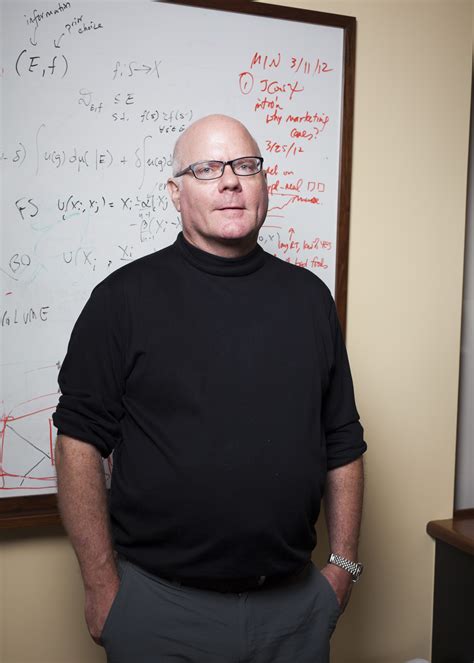A Quote by Craig Venter
One of the things about genetics that has become clearer as we've done genomes - as we've worked our way through the evolutionary tree, including humans - is that we're probably much more genetic animals than we want to confess we are.
Related Quotes
When humans act like animals, they become the most dangerous of animals to themselves and other humans, and this is because of another critical difference between humans and animals: Whereas animals are usually restrained by the limits of physical appetites, humans have mental appetites that can be far more gross and capacious than physical ones. Only humans squander and hoard, murder and pillage because of notions.
Perhaps generations of students of human evolution, including myself, have been flailing about in the dark; that our data base is too sparse, too slippery, for it to be able to mold our theories. Rather the theories are more statements about us and ideology than about the past. Paleontology reveals more about how humans view themselves than it does about how humans came about, but that is heresy.
Charles Darwin and I and you broke off from the family tree from chimpanzees about five million years ago. They're still our closest genetic kin. We share 98.8 percent of the genes. We share more genes with them than zebras do with horses. And we're also their closest cousin. They have more genetic relation to us than to gorillas.
There is behavioral ecology, which looks closely at the difference different ecologies make to behavior and other features of animals and humans. There's evolutionary individual psychology, there's evolutionary social psychology. In Darwin's terms, evolution couldn't exist without variation, and variation is important in behavioral genetics. And so on, and so on. There are so many instances in which evolution actually sharpens the precision, I think, with which one can find out the importance of differences. We're interested in differences as well as commonalities.
This transformation is already proceeding, and if we want to consciously find these evolutionary currents operating in our own being as well-if we want to consciously join Spirit-in-action-then the four quardrants can help us orient ourselves more effectively, can help us become more conscious of the evolutionary currents already flowing around us and through us and in us.
The fact is that humans have been shaping the genetics of what they eat for thousands of years. Genetic engineering simply speeds up the process that used to take generations. Preventing people from getting things like golden rice or disease-resistant cassava destroys human life, and does not spare the environment in any way.
Our approach has worked for us. Look at the fun we, our managers, and our shareholders are having. More people should copy us. It's not difficult, but it looks difficult because it's unconventional - it isn't the way things are normally done. We have low overhead, don't have quarterly goals and budgets or a standard personnel system, and our investing is much more concentrated than average. It's simple and common sense.
If you're up on a stage, naked and solo and singing songs to people, there's not much place to hide, so you may as well confess what you want to confess and say what you want to say, whatever that is. Some songs just turn out as being more about me, and some are more through the eyes of other people, or third-person descriptions of people.




































